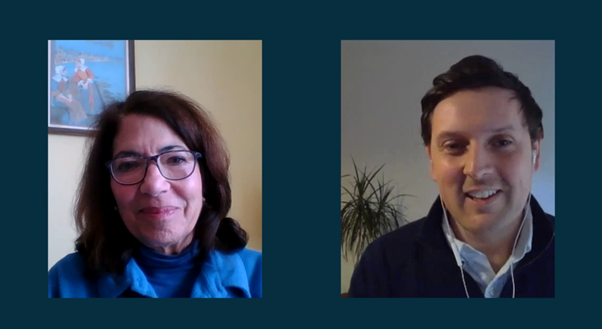In our latest Impact Chat, Social Invest Director, Luke Cross, spoke to Julie McDowell, Chair of Blackwood Homes and Care and board member of Sustainability for Housing, which oversees the ESG standard for the social housing sector.
Julie has more than 20 years of experience working in responsible investment, having previously served as head of sustainable and responsible investment at Standard Life Investments and then providing consultancy services in the oil and gas and extractive industries on sustainability reporting.
Julie has held a number of advisory and non-executive roles, including at NHS Lothian, Friends Life and responsible investor Edentree Investment Management.
Below are some highlights of the conversation.
ESG has taken hold properly in the last five years
The conversation started with Julie talking through her vast career history and the different industries she has worked in. She recalled her initial interest in ethical investing, earlier work at Standard Life Investments and the onset of what came to be known as ESG. She notes the increased interest in the sector over the last few years.
“I would say the really big interest in ESG and responsible investment didn’t come until about five or six years ago. It meandered along and then suddenly it exploded,” she explains.
The mood from investors has changed
Looking back on her work in responsible investment, Julie is able to identify a change in mood among the finance community.
She recalls: “There was a lot of resistance to it [responsible investment]. Financial analysis, for the most part, didn’t know what we were talking about and they didn’t welcome the additional layer of research that we were trying to share with them.”
Many factors contributed to the rise of ESG
Julie explains that the rise of ESG has been rapid and we are now at a point where it is recognised by most corporations and investors.
She notes that it is hard to pinpoint one factor that has seen it thrust into the mainstream. She says: “I think there probably are a number of things that created that pressure, the increasing focus on the problems, the size of the problems, the continuing failure of government to address real key environmental and social challenges we have.”
Social Housing can learn from private sector on ESG
Julie also discusses how her experience in the private sector has informed her work for Sustainability for Housing, the organisation overseeing social housing’s ESG reporting standard.
She suggests that social housing can learn from how corporations have evolved to meet the demands of ESG after coming under greater scrutiny.
“The biggest corporates that had the most criticism have developed very sophisticated approaches to identifying, quantifying, collecting data and reporting on ESG issues.”
Social Housing resisted ESG to begin with
Much like her time in the responsible investment industry, Julie explains that initially the social housing sector took some convincing to adopt ESG reporting.
She says: “There was a lot of skepticism, resistance and lack of interest, lack of knowledge, but I think the sector realizes it’s just not going to go away and they’re going to have to deal with it.”
Julie notes that this was driven in part by funders who are becoming more interested in ESG. She says that there is still some work to do for the social housing sector to fully appreciate the level of interest funders have in ESG.
Discussing the updated Sustainability Reporting Standard for Social Housing (SRS), Julie mentioned how she is keen to see the Standard continue to evolve.
She said: “Id like to see the standard envision a timeline so that HA adopters don’t worry that they have to do everything all at once in order to start. It’s going to take time, it’s a roadmap.”
Click here to watch the Impact Chat in full


